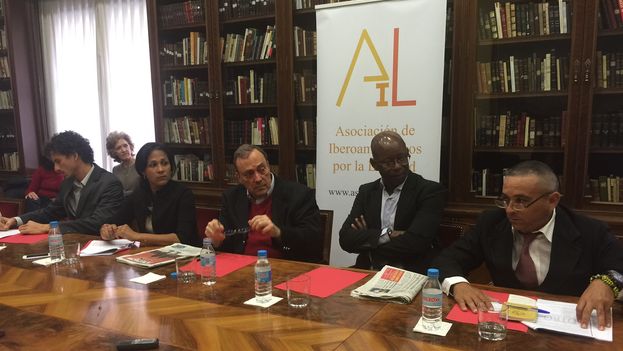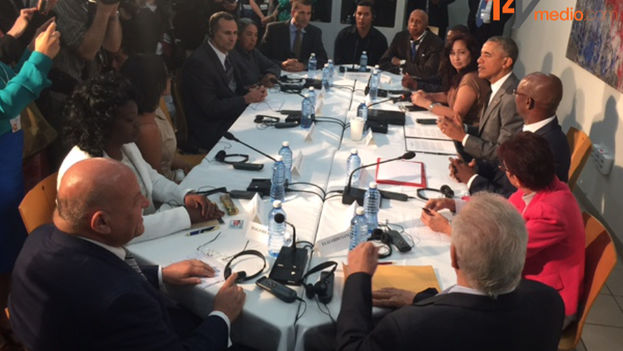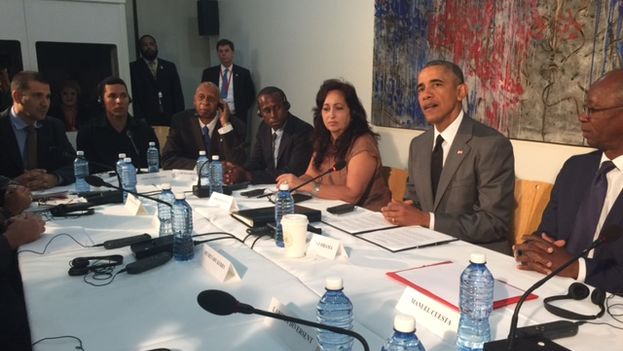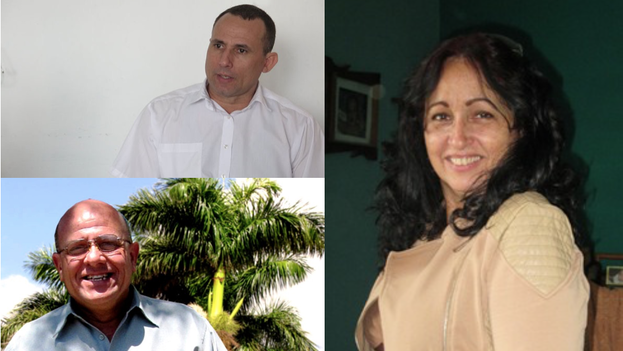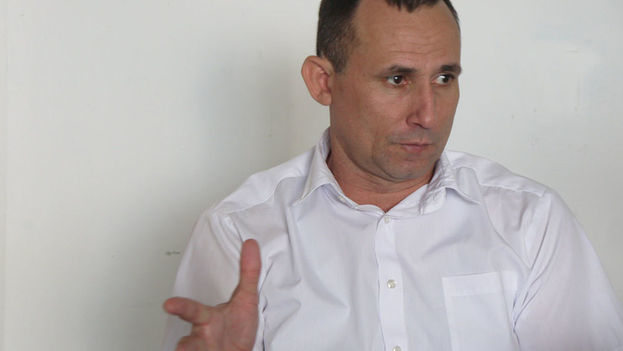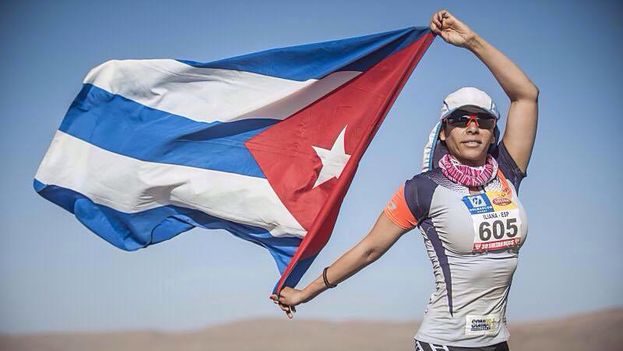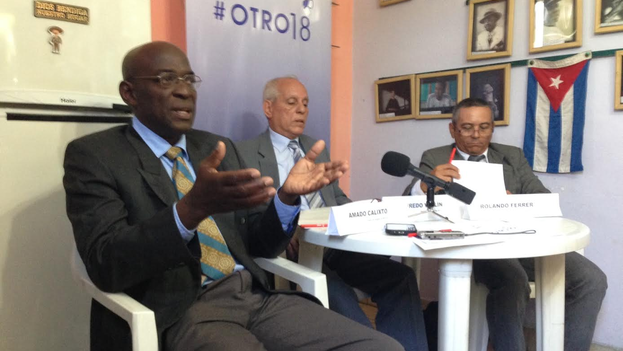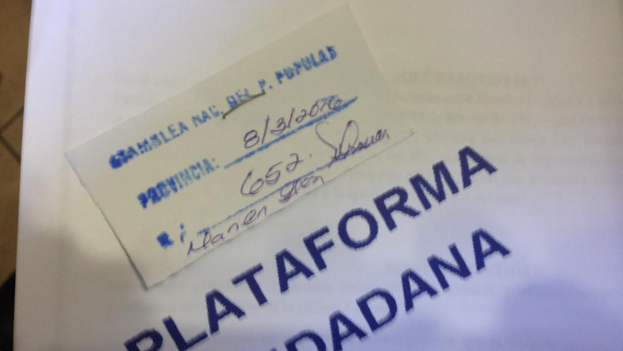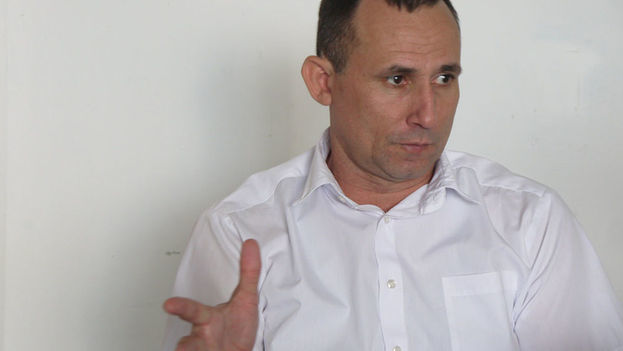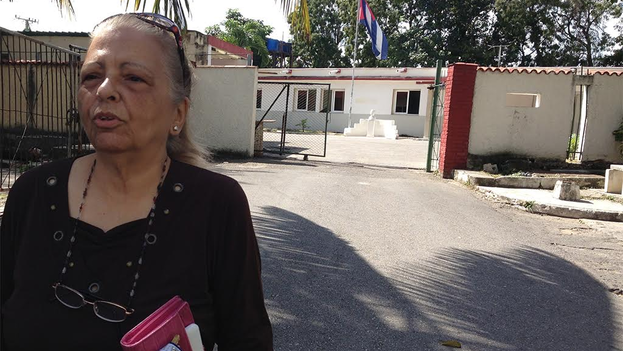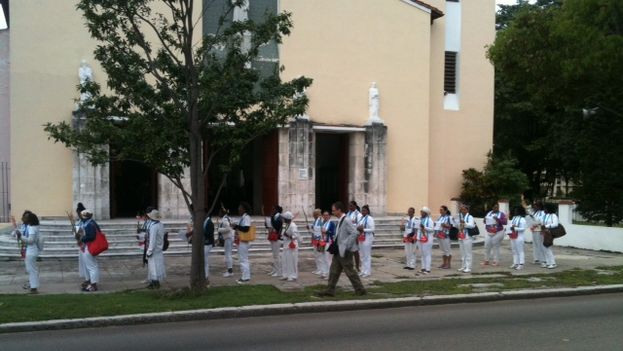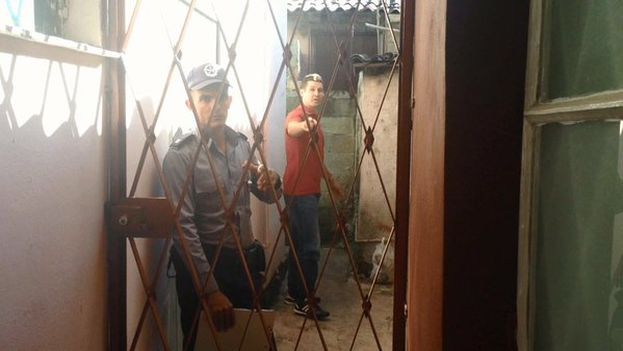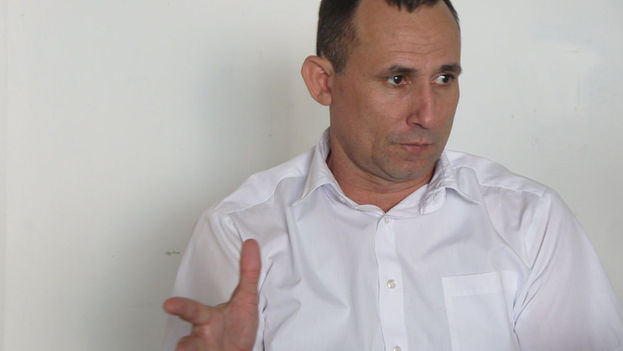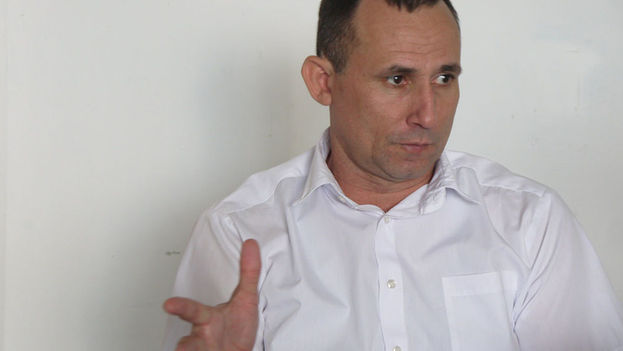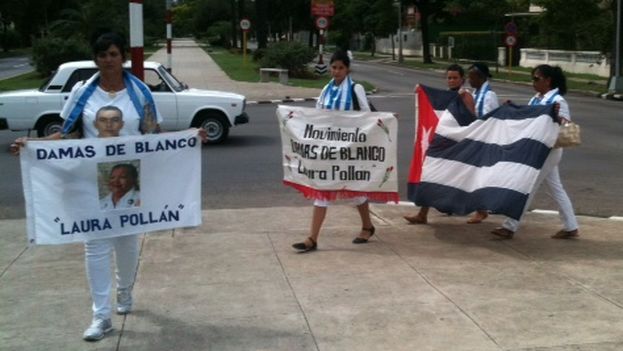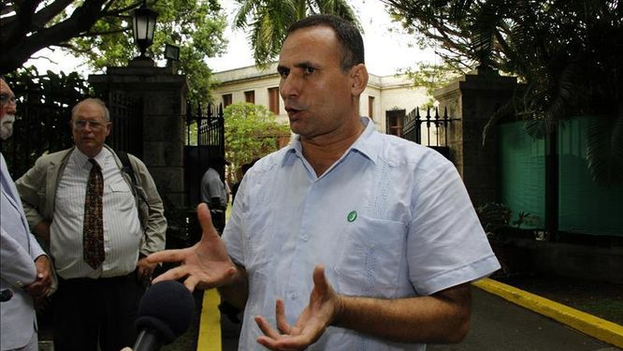
![]() 14ymedio, Reinaldo Escobar, Havana, 5 May 2016 — Since early this month, members of the Patriotic Union of Cuba (UNPACU) have begun to disseminate the document Minimum Program and Projections, which outlines guidelines for the actions of the opposition organization, forms of struggle, and a proposal for the country ‘s future.
14ymedio, Reinaldo Escobar, Havana, 5 May 2016 — Since early this month, members of the Patriotic Union of Cuba (UNPACU) have begun to disseminate the document Minimum Program and Projections, which outlines guidelines for the actions of the opposition organization, forms of struggle, and a proposal for the country ‘s future.
With the publication of this text, which summarizes the experience of the nation’s largest group of activists, UNPACU is demonstrates maturity and responds to criticisms about the Cuban opposition’s lack of a platform or agenda.
In nine pages, the program underlines the commitment of the opposition to use peaceful means to reach its goals. It also clarifies that the proposals contained are addressed to those living in the country and in the diaspora and proclaims the need for “a free, democratic, just, fraternal and prosperous Cuba.” continue reading
This inclusiveness is appreciated in a nation that for decades no longer exists only within the island, and where the phenomenon of emigration is growing in numbers rather than diminishing in recent months.
Jose Daniel Ferrer, national coordinator for UNPACU, is optimistic that the program’s reach to date. Speaking to 14ymedio he noted, however, that “the document is not final and is subject to changes or corrections.”
For this former prisoner of the Black Spring, the platform is a “more complete tool” in the work of the organization and has been received “very well,” mainly in Santiago de Cuba. Right now, he says, it is “being distributed throughout the province, we will continue to print it and send it to the rest of the country.”
The text has not been the result of improvisation or a race against time to publish a program. Several activists consulted confirmed that the text originated in March of 2013, when the UNPACU instructed the lawyer Rene Gomez Manzano, its chief legal adviser, to write the first draft.
That initial text was worked on by regime opponent Elizardo Sanchez Santa Cruz and Ferrer himself, who used as sources for the final wording of the document other texts, including: UNPACU, For The Cuba Of Your Dreams and We Are UNPACU. Only after the recent close of the 7th Congress of the Communist Party, with its disappointing results, did the organization publish its program.
Ferrer explained that the dissemination of the text was preceded by “many days of work and consensus in meetings occurring in several provinces of the country.” Technology was an ally in this effort, as they were also able to share opinions through “emails, Facebook chat and Twitter direct messages,” he says.
The organization describes itself in the pages Minimum Program and Projections as “a pluralistic and ecumenical effort of a union of activists and former organizations.” Its managers collected and summarizes in their ideology components ideology “of Christian belief and the liberal and social democratic doctrines.”
Their main proposal for the country is summarized in “the establishment of a democratic order that combines a social market economy, political pluralism and makes possible greater equity and solidarity between the individuals and groups that make up our society.”
Copies of the program will be delivered to the “different levels of the so-called People’s Power, and, why not, the oppressor Party,” said Ferrer, who is quick to note that the “the main audience is the millions of Cubans tired of living without rights, without freedom and in complete misery. ”
In its project for the economy, the program lists the current situation as “an authoritarian capitalism, combining the worst of a savage market and a state centralism,” and details the main problems affecting items such as wages, food, housing, transport, industry and agriculture, among others.
As a counterpart, UNPAC advocates a social market economy, where “both the State and the markets, open to citizen control and advocacy, serve as mechanisms to generate personal and public prosperity.” It is also committed to “the fertile combination of all forms of property and production: small, medium or large, national, foreign or mixed,” but rejects the existence of state or private monopolies.
The group claims the right of Cubans living abroad to invest and own property in the country and proposes the creation of “genuine agrarian reform that recognizes the full rights of those who work the land.” Detailing the need to respect the properties acquired after 1959, especially those used as living quarters, it intends to seek “compensation formulas” and the right to put forward impartial claims for confiscated property.
In the socio-political approach, the program calls for a new constitution and a new electoral law “to ensure free, fair and competitive elections,” and proposes the establishment of freedom of expression and association and the right to strike and unionize.
The document calls for respect for all religious beliefs and fraternal organizations, and the promotion of Internet access, freedom in art, academic freedom in teaching, university autonomy, the repeal of all laws in force today that violate human rights and the immediate and unconditional release of all political prisoners.
For those who see this emergence of this platform as a possible cause of friction between dissident forces, Ferrer says that, on the contrary, the new text “enriches and strengthens the struggle for the democratization of Cuba.” A clarification that is worth taking into account is that the Democratic Unity Roundtable a coalition of opposition organizations to which UNPACU belongs, is about to publish its own program.
Ferrer does not believe in haste or improvisation, but stresses that UNPACU members do not “like to leave for tomorrow what you can do today.”

